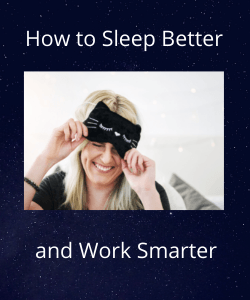 There’s no doubt about it, when I’m not getting enough sleep the world sees a watered down version of me. I’m not totally present, I struggle to get everything done on time then I beat myself up for not doing things better. So my offering today is How to Sleep Better and Work Smarter.
There’s no doubt about it, when I’m not getting enough sleep the world sees a watered down version of me. I’m not totally present, I struggle to get everything done on time then I beat myself up for not doing things better. So my offering today is How to Sleep Better and Work Smarter.
This post is for anyone attempting to get through the day / week / month on less than enough shut-eye whilst still juggling a busy schedule at work and at home.
So if you find yourself dreading that mid-afternoon slump or even falling asleep at your desk, read on to find out how you can :
- wake up refreshed every morning, ready to face each challenge head on
- maintain your energy levels throughout the day and
- increase productivity and motivation, allowing you to power through your day at optimum levels.
I’ve shared below my main reasons for lack of sleep as well as the solutions that worked for me plus some other hints and tips that I picked up along the way. By the end of this post I hope you’ll be armed with a viable strategy that works for you too.
In the meantime, let’s start by taking a quick look at how much sleep is enough. If you’re struggling to keep your eyes open, just click on a link below to go straight to that section. (Then come back for the full post after a power nap!)
Contents…
How Much Sleep is Enough?
“The National Sleep Foundation recommends that most adults get between 7 and 9 hours of sleep each night and that older adults over 65 years of age get between 7 and 8 hours…These guidelines can be helpful to use as a starting place when you think about what healthy sleep means for you, but keep in mind that each person’s sleep needs vary.”
| Did you just laugh? Do you remember the last time you got 7 or 8 hours straight? Of course, it’s important to remember that we each have different lifestyles, bodies, minds, jobs, expectations and demands upon us. |
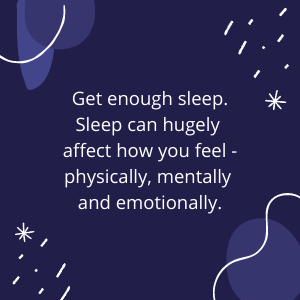
| For some people, 5 or 6 hours is more than enough sleep. They wake up before the alarm feeling refreshed, rejuvenated and ready to take on the world. For others, 6 hours barely touches the sides. |
As well as asking how much sleep is enough, you should also think about the quality of your sleep. Quantity plus quality is key here and we’ll be taking a closer look at that below. Sleep affects all areas of our lives – the way we feel, the way we look, the way we think, the way we interact with others and of course the way we carry out day to day tasks, whether at home, at work or at play.
Please be aware that the information within this post is general information only. It’s not advice nor an alternative to medical advice. (Click here for full medical disclaimer.) Please consult your doctor if you have any health concerns in connection with your sleep patterns.
Why Aren’t You Sleeping?
In this section we’ll take a look at some of the possible causes along with tips and suggestions on improving the quality and quantity of your sleep.
Possible Problem – Environment
If your drapes are letting in the moonlight, sunlight or any other type of light, this is a sure way to keep you from getting to sleep. Likewise, being too hot or cold will keep you awake and is likely to wake you through the night if your room temperature isn’t regulated.
Or perhaps noise is the issue – are you regularly awoken by next door’s screaming infant or barking hounds? Or perhaps you live in the middle of party central and it’s seemingly impossible to get an ounce of sleep before 2 a.m.
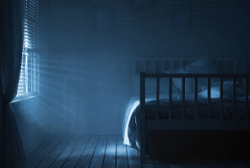
Try These Solutions…
If your room’s not dark enough, the solution’s fairly simple. Try a sleep mask or invest in some black-out blinds. Next, get the temperature right. According to the Sleep Foundation…
“The best bedroom temperature for sleep is approximately 65 degrees Fahrenheit (18.3 degrees Celsius). This may vary by a few degrees from person to person, but most doctors recommend keeping the thermostat set between 60 to 67 degrees Fahrenheit (15.6 to 19.4 degrees Celsius) for the most comfortable sleep.”
For noisy environments a gentle word with the neighbours might make all the difference. If not, could you move bedrooms? Or could you move house?
OK, so the latter’s a little drastic. But how about soundproofing? Click here for the homeadvisor.com article on the costs and considerations involved. If this isn’t a viable solution for you, give earplugs a try. They won’t block out noise completely but they’ll go a long way towards reducing it. Take a look at the 7 Best Earplugs for Sleeping from healthline.com.
Your bedroom should be dark, the right temperature and quiet. A good mattress and comfortable pillows will also help you to create the ideal environment for a good night’s sleep.
Possible Problem – Gadgets and Technology
In these modern times, most of us are engaged with technology for the majority of our waking hours. Whether for work or for personal use, we tend to be attached to one gadget or another. This can cause sleep problems in more ways than one.
 Firstly, most screens emit “narrow-spectrum blue light.” This type of light is also generated by LED or flourescent lights, as well as the sun. So it’s all around us throughout the day. But many of us are exposed to this light in the evening as well.
Firstly, most screens emit “narrow-spectrum blue light.” This type of light is also generated by LED or flourescent lights, as well as the sun. So it’s all around us throughout the day. But many of us are exposed to this light in the evening as well.
The problem is, blue light suppresses our production of melatonin, a hormone which helps us to regulate our internal clock and our sleep patterns. It’s really very simple – less melatonin, less sleep.
In addition, when we use gadgets into and throughout the night, our brains remain stimulated and alert. We don’t give them time to return to more natural behaviors which are condusive to mental relaxation and essentially sleep.
This is the age we live in and technology is here to stay, but there are a number of things you can do to reduce the effects of technology and gadgets on your sleep patterns.
Try These Solutions…
Dim it Down
Dim your screens as the evening draws in to reduce blue light. You can use software such as f.lux which alters the color of your screen display according to the time of day and your location. This helps to reduce eye strain and improve sleep patterns.
Switch it Off
Say goodnight to your gadgets at least 1 hour before bedtime – switch off or silence the phones, turn the laptop / tablet / PC off. Detach yourself from the worldwide web. It will still be there tomorrow so give yourself some time off.
Go Passive
Most smart TVs and e-readers also emit blue light, but watching TV or reading is a more passive way of using tech, so if you really can’t switch everything off, at least stay away from active activities. (Gaming, messaging, social media engagement etc.)
You could also try anti-glare blue light blocking glasses to help take the strain off your eyes. (Click here to find out more from Medical News Today.)
Give your brain a chance to slow down and disconnect from the tech. This way you’re more likely to produce healthy levels of melatonin which help you to feel sleepy and ready for bed.
Possible Problem – Stress
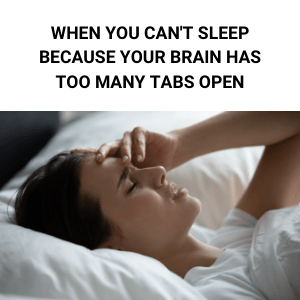 Stress is without doubt one of the biggest causes of insomnia in our modern world. Have you ever lain awake at night, stressing over the day’s events and worrying about what tomorrow brings? If you have, you’ll know it’s impossible to sleep all the while your thoughts are going round and round like this.
Stress is without doubt one of the biggest causes of insomnia in our modern world. Have you ever lain awake at night, stressing over the day’s events and worrying about what tomorrow brings? If you have, you’ll know it’s impossible to sleep all the while your thoughts are going round and round like this.
When we’re stressed we produce higher levels of adrenaline and cortisol. As well as interfering with sleep patterns, this can also lead to depression and anxiety, weight gain, diabetes, high blood pressure, physical tension, headache, migraine and so much more.
A little stress here and there is normal. After all, everyone’s stressed right? But constant or chronic stress can affect all areas of our lives…
“Stress often impacts on sleep quality and duration. Stress and a lack of sleep can both have a severe impact on physical and mental health.” (Rf Medical News Today.)
The bad news is, most of us are experiencing unhealthy levels of stress on a day to day basis. The good news is, there are many ways to begin to deal with stress.
Try These Solutions…
Within our wellness at work hub, we’ve covered aromatherapy, yoga and meditation in the workplace. You can take a look at those articles (and more) by clicking here.
Of course, these practices can be carried over to your home life as well, and they don’t just help with stress and sleep patterns. The knock-on effects include reduced anxiety and depression, higher energy levels, increased productivity plus enhanced feelings of positivitity, contentment and general happiness.
In particular, meditation is an excellent way to de-stress at night in order to detach yourself from a difficult day. Before bedtime, find yourself a quiet place to sit or lay and listen to one of the many thousands of guided meditations available on YouTube. Here’s an example…
If you don’t like this one, find something that works for you. The key thing to remember with meditation is that you don’t need to empty your head of thoughts – in fact, trying to do so can whip you up into a mental frenzy. Instead, just listen along and go with it.
If you get into the habit of meditating each night, it will become easier to settle, relax and enjoy. (We’ll be covering bedtime routine a little later.)
As well as learning how to deal with stress, you may need to find ways to reduce the amount of stress you’re facing each day.
For example, if you’re stressed because of work, ask yourself these questions…
- Are your targets achievable?
- Do you have enough time to get all your tasks done?
- Do you have a good work-life balance?
The answer to these questions may be no, but improving your sleep patterns can go a long way to improving your productivity and motivation. However, if there really aren’t enough hours in the day to get your job done, speak to your boss. See if you can find a way between you to make things more manageable.
Don’t be afraid to speak up – it’s better to deal with your problems face on than to find yourself ill, signed off sick or even unable to work further down the line due to anxiety, depression, fatigue or any of the other possible effects of chronic stress.
“Job stress can be all-consuming — but it doesn’t have to be. Address your triggers, keep perspective and know when to seek help.” (Rf The Mayo Clinic.)
Click here to read the Mayo Clinic’s full article Coping With Stress : Workplace Tips.
Possible Problem – Caffeine
It’s recommended that the average person abstains from caffeine from 4 to 6 hours before bedtime. If you’re particularly susceptible to the effects, leave it longer.
Personally, I have my 2 small, strong cups of coffee in the morning – OK, sometimes 3 – and that’s me done with caffeine by 10 o’clock. But don’t forget, there’s caffeine in other drinks. Some teas contain caffeine. Energy drinks are loaded with it and some regular sodas pack a punch as well.
Try These Solutions…
 Check what’s inside your chosen beverage. You could replace regular coffee with decaf, but you should also know that there’s still a small amount of caffeine in most decaffeinated coffees.
Check what’s inside your chosen beverage. You could replace regular coffee with decaf, but you should also know that there’s still a small amount of caffeine in most decaffeinated coffees.
Why not go down the natural, non-caffeinated route? In the evenings, try herbal teas. Either one of the different brands which offers night-time “sleepy” blends or by making your own.
Here are some of the better known herbs which can be used for rest, relaxation and more…
| Valerian root | A traditional remedy for insomnia and anxiety. Not to be used for long periods. Also, check with your doctor as valerian root may not be suitable with certain medicines. |
| Lavender | In addition to its relaxing properties, lavender is also widely used for digestive issues and pain relief. Possible side effects include constipation and increased appetite. |
| Lemon verbena | Used to relieve a wide range of complaints in addition to insomnia. These include digestive disorders, colds, fever and skin problems. However, avoid this if you have kidney disorders. |
| Chamomile | Another great all-rounder. Used for sleep, stress, digestive problems and even diabetes. But steer clear if you’re allergic to daisies. |
| Peppermint | Again, used for a wide range of complaints including sinus problems and digestive disorders. May help to relieve headaches and migraines. Can be very effective against stress and is also taken for an energy boost. Don’t use if you suffer with acid reflux. |
If you do decide to whip up your very own concoction, do a little research first. As well as those listed briefly above, find out about other possible side effects, plus how much to use and how to use it. Also, if you’re taking medication, check with your doctor that it’s safe to do so with your chosen herbs.
Possible Problem – Alcohol
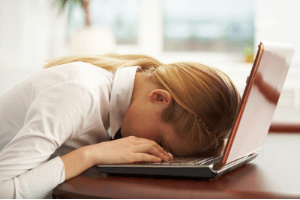 You may really enjoy a glass of wine or two at the end of a long and stressful day to help you unwind, relax and drift off into a peaceful slumber.
You may really enjoy a glass of wine or two at the end of a long and stressful day to help you unwind, relax and drift off into a peaceful slumber.
Yes, alcohol does have a sedative effect, but the sleep you experience when you’ve been drinking differs greatly from your alcohol-free sleep patterns.
You may fall asleep quicker when you’ve been drinking, but the overall quality and amount of sleep is much less. We each experience sleep cycles through the night, but these become disrupted by alcohol which can cause you to wake often and then struggle to get back to sleep.
In the morning you’ll have a double-whammy to deal with. Not only will you feel tired due to lack of sleep, but your body will also be working harder to expel the toxins you so gladly consumed whilst trying to de-stress the night before. This can lead to a rather unfortunate chain of events…
“Since alcohol can reduce REM sleep and cause sleep disruptions, people who drink before bed often experience insomnia symptoms and feel excessively sleepy the following day. This can lead them into a vicious cycle that consists of self-medicating with alcohol in order to fall asleep, consuming caffeine and other stimulants during the day to stay awake, and then using alcohol as a sedative to offset the effects of these stimulants.” (Rf Sleep Foundation.)
Try These Solutions…
Take a look at where you are now and where you want to be. Have targets in place to help you to cut down such as how many glasses or units you’re allowed each evening. This way you’ll know your limits before you crack open the first one. Also…
- Check out lower alcohol or alcohol free options
- Drink herbal teas in the evenings for relaxation and more (see above)
- Use smaller measures and increase your mixer if you’re a spirit drinker
- Drink plenty of water throughout the day to help you stay hydrated and reduce the temptation of a “proper” drink.
In the meantime, if you find yourself overdoing it click here for the Everyday Health article on Natural Hangover Remedies.
It seems more people than ever are turning to alcohol to get through difficult times. We use alcohol as an escape, a reward, a consolation, for celebration. But alcohol can be a slippery slope so take a good, honest look and be realistic as to whether or not you’re still in the control seat.
If you find that you’re not, don’t waste your energy on beating yourself up. Use it instead to find ways to make positive changes so you can get back on track and make things even better than before.
Drinking too much and too often is an easy trap to fall into. If you have concerns about your own alcohol consumption or any other substance abuse, click here for information on US government and non-profit organizations providing support for addiction and mental health.
Possible Problem – Nicotine
 If you’re a smoker, you’re probably aware that nicotine is a stimulant. This makes it harder to get to sleep and to stay asleep because nicotine can energize your nervous system, increase your heart rate and generally make you more alert.
If you’re a smoker, you’re probably aware that nicotine is a stimulant. This makes it harder to get to sleep and to stay asleep because nicotine can energize your nervous system, increase your heart rate and generally make you more alert.
Smoking also affects your internal clock and therefore your sleep patterns. This in turn can have a very negative impact on your mood and mental health. In addition, smokers are more likely to suffer with sleep apnoea. This is when your breathing stops (then starts again) repeatedly whilst you sleep.
Sleep apnoea can cause a number of problems. If left untreated these can include high blood pressure, stroke or even heart attack.
As an ex-smoker, I understand how difficult it is to quit the evil herb. But I’ve been ciggie free for more than 3 years now, and athough I don’t allow myself to become complacent about smoking (or not smoking), I’m pretty sure that my smoking days are well and truly over. Find out how I did it below.
Try These Solutions…
If you’re in no way ready, wanting or willing to quit smoking – and as an ex-smoker I totally get this – then at the very least, abstaining from nictoine for 2 or more hours before bedtime will increase your chances of a slightly better night’s sleep.
If, on the other hand, you’re ready to free yourself from your smoking nightmare then you should check out Allen Carr’s Easyway. I’m in no way linked or affiliated to the Easyway method, but I’m so very, very pleased to report that this method worked for me.
Since my very first cigarette, I smoked every day except for 4 quitting attempts lasting between 2 days and 6 weeks. I started young and when I eventually cracked it, by the time I smoked my last cigarette I was on at least 40 a day and had been smoking for more than 30 years.
I never thought I could do it but that was over 3 years ago. If I can do it, you probably can too.
Quitting smoking can help to improve your sleep patterns, sharpen your focus and concentration, increase your energy and add years to your life. But as a smoker, you know that. If you’re ready to make a change, click here to find out more about Allen Carr’s Easyway. (If you’re not ready yet, remember the name and look it up when you are.)
Who Needs a Bedtime Routine?
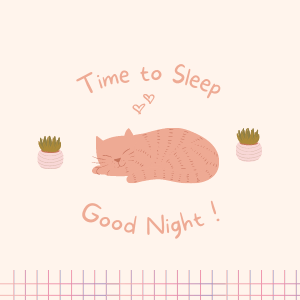 The simple answer is – everyone! Bedtime routines aren’t just for kids. They’re just as important for us big people. If you don’t follow a good bedtime routine you’re unlikely to feel ready for bed mentally or physically.
The simple answer is – everyone! Bedtime routines aren’t just for kids. They’re just as important for us big people. If you don’t follow a good bedtime routine you’re unlikely to feel ready for bed mentally or physically.
Identify your personal sleep problems and improve them with the suggested solutions above. Incorporate a good set of pre-bedtime habits to let your mind and body know that the time is approaching to switch off and enjoy your slumber.
By doing so you can help your internal clock to run smoothly. This in turn helps your body to produce the right amount of hormones and chemicals at the right time, enabling you to relax and feel sleepy.
Try to follow set times for your pre-sleep wind down. Also, switch the light off at the same time each night and wake up at the same time in the mornings where possible.
“…creating a bedtime routine is one of the easiest steps you can take to enjoy better sleep. Bedtime routines are a simple lifestyle change that can help your mind and body relax before bed.” (Rf Sleep Foundation.)
In addition to the points above, you should also incorporate the following into your daily / bedtime routine in order to achieve optimum quality and amount of sleep :
- Don’t eat too late…experts recommend not eating for around 3 hours before bedtime so your body has time to digest your food and rest also. If you find this difficult, at least keep eating to a minimum. Try just a small, healthy snack in the lead up to bedtime – a little plain yoghurt, half a banana or maybe a small chunk of cheese.
- Don’t exercise too late…depending on the activity, it’s recommend that you leave up to 3 hours between exercise and bedtime. Of course, gentler forms of exercise can help you to wind down i.e. certain types of yoga.
- Write it down…many people find that journaling is a good way to lay down and leave what has happened throughout the day. It can be a great way to reduce stress and worry.
- Get organized…prepare a to-do list for the next day and then forget about it. Allow yourself to switch off, safe in the knowledge that it’s all on the list so you don’t need to worry. If it helps, leave a notepad by your bed in case you wake through the night. Jot down that extra task you remembered then get back to sleep.
Most of us will experience difficulty sleeping at some time or another throughout our busy, changing lives. But please remember to consult your doctor if you have reason to be worried about your health and possible underlying medical reasons for insomnia.
The Sleep Better Work Smarter Sum-Up
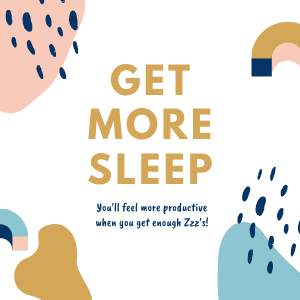 So that bring us to the end of today’s post on How to Sleep Better and Work Smarter. It’s a widely recognized fact that lack of sleep can affect all areas of your life – how you interact with others, how you feel about yourself, how you perform tasks, how you prioritize and manage your time and so on.
So that bring us to the end of today’s post on How to Sleep Better and Work Smarter. It’s a widely recognized fact that lack of sleep can affect all areas of your life – how you interact with others, how you feel about yourself, how you perform tasks, how you prioritize and manage your time and so on.
Whether at home or at work, if you’re not getting enough sleep, you simply won’t be showing up with the best version of you.
As important as the amount of sleep you get is the quality of your sleep. Throughout this post we’ve taken a look at some of the most common reasons for poor sleep, along with suggested solutions.
Realistically, most people can make at least minor improvements to their lifestyle in order to improve their sleep patterns. If you can make changes to address and resolve all of your sleep problems, then that’s great. But if you can’t, just start off with steps in the right direction and build on your new habits day by day – or night by night.
I’ve certainly improved my sleep patterns by making changes to my lifestyle. I hope this article will help you to do the same. If it does, drop me a line and let me know. I’d also love to hear from you with any other tips, tricks or sleep hacks that work for you.
Leave a comment in the box below or email jane@jetofficesolutions.com.
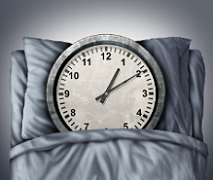
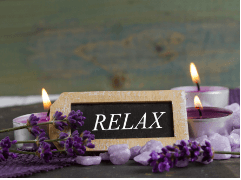

Hi Jane, I enjoyed reading this though some causes seem distant to me as I’ve never experienced them e.g. alcohol addiction. I’ve however struggled with swings in temperate. During the hot season, I find it hard to get adequate sleep. We don’t have an AC where I live so I got a lighter duvet that I interchange depending on the weather. It works but not at 100%. I concur with you how you sleep at night does really affect your day, more so if you work in a fast-paced office.
Hi Steve, I’m pleased you enjoyed the post. It can be really difficult getting to sleep in a hot climate without aircon. Have you tried using a fan as well? Placing it behind a bowl of ice helps to circulate a little cooler air. I’ve used this method myself, but am pleased to say I now have aircon. I only use it July and August and it does bump up the electricity bills, but I couldn’t live without it now.